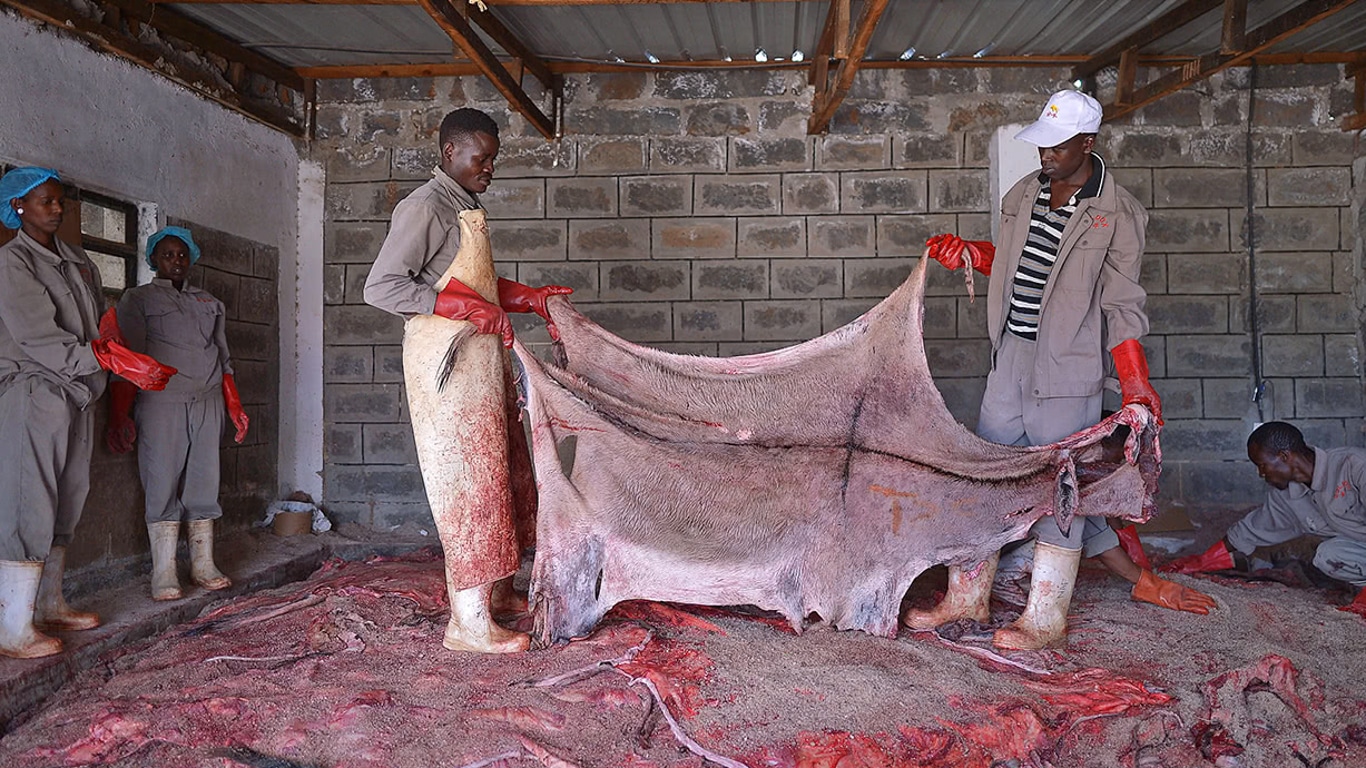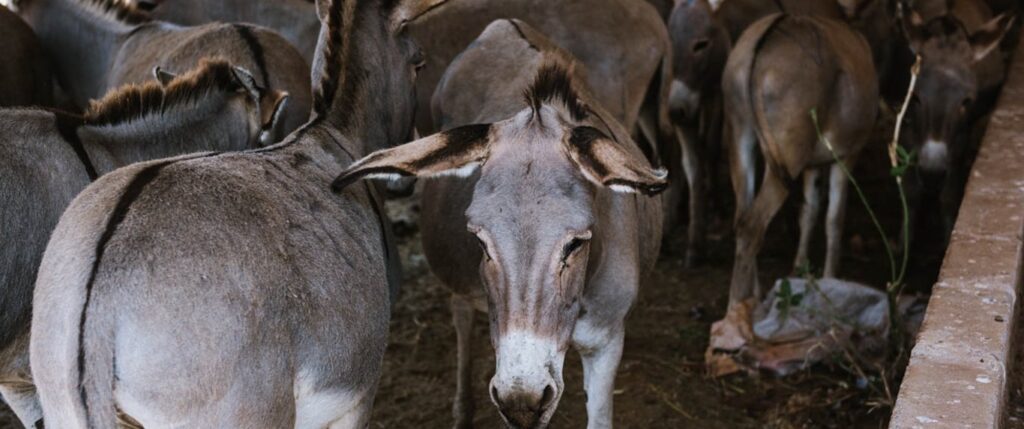The largely unregulated Chinese donkey skin trade is slaughtering hundreds of thousands of donkeys every year, all in the pursuit of a centuries-old traditional “medicine” called ejiao (pronounced “uh-jee-ow”), reports ENCA.com. The product, gleaned from collagen extracted from dead donkeys’ skins, is believed to improve blood circulation, enhance fertility, and remedy insomnia and other ailments.
The ever-increasing demand for ejiao means donkeys are being bludgeoned to death or even skinned alive at an uncontrollable rate to meet market needs. At the current level of slaughter, the species could be extinct within the next four years.
Despite having no proven health benefits, ejiao sells for approximately $783 per kilogram and the Chinese market for it increased from roughly $3.2 billion (£2.7 billion) in 2013 to $7.8 billion (£6.4 billion) in 2020.
The growing demand in China is being driven by rising incomes, popularization via television shows, and an aging population. Shockingly, ejiao can be prescribed by doctors and covered by health insurance. This has led to a critical shortage of donkeys both in China and worldwide. But nowhere is feeling the negative impact of the trade as harshly as Africa, according to Lauren Johnstone, Senior Researcher at the South African Institute of International Affairs.
Africa is home to the highest number of donkeys on the planet: about two-thirds of the estimated global population of 53 million donkeys in 2020. While there is no concrete figure for the exact number of donkey skins exported to China from the continent due to a burgeoning illicit trade, it is estimated that approximately 4.8 million donkeys are slaughtered for their skins worldwide every year. If donkey slaughter continues at this rate, the trade could completely wipe out these donkeys in our lifetime.

Moreover, the loss of donkeys could have severe consequences for marginalized communities. Donkeys have a valuable, ancient role as workhorses. They are estimated to support approximately 158 million people in Africa and their extinction would likely be associated with an increased risk of poverty.
What is the solution?
“It would be important for animal welfare agencies in China to raise awareness of the damaging impact of the illicit donkey hide trade,” says Johnstone. “Better regulatory standards are needed by China’s ejiao industry such that illegally traded and stolen donkey hides are not part of the industry. Deeper cooperation across African countries would also help to preserve the ancient role of the donkey.”
Network for Animals supports donkeys rescued from the donkey skin trade and from neglect and abuse in the United Kingdom, Kenya, South Africa, Zimbabwe, Tanzania, Israel and Greece. In 2021, we were instrumental in shutting down a donkey slaughterhouse in Shinyanga, Tanzania, and banning donkey slaughter across the country.

